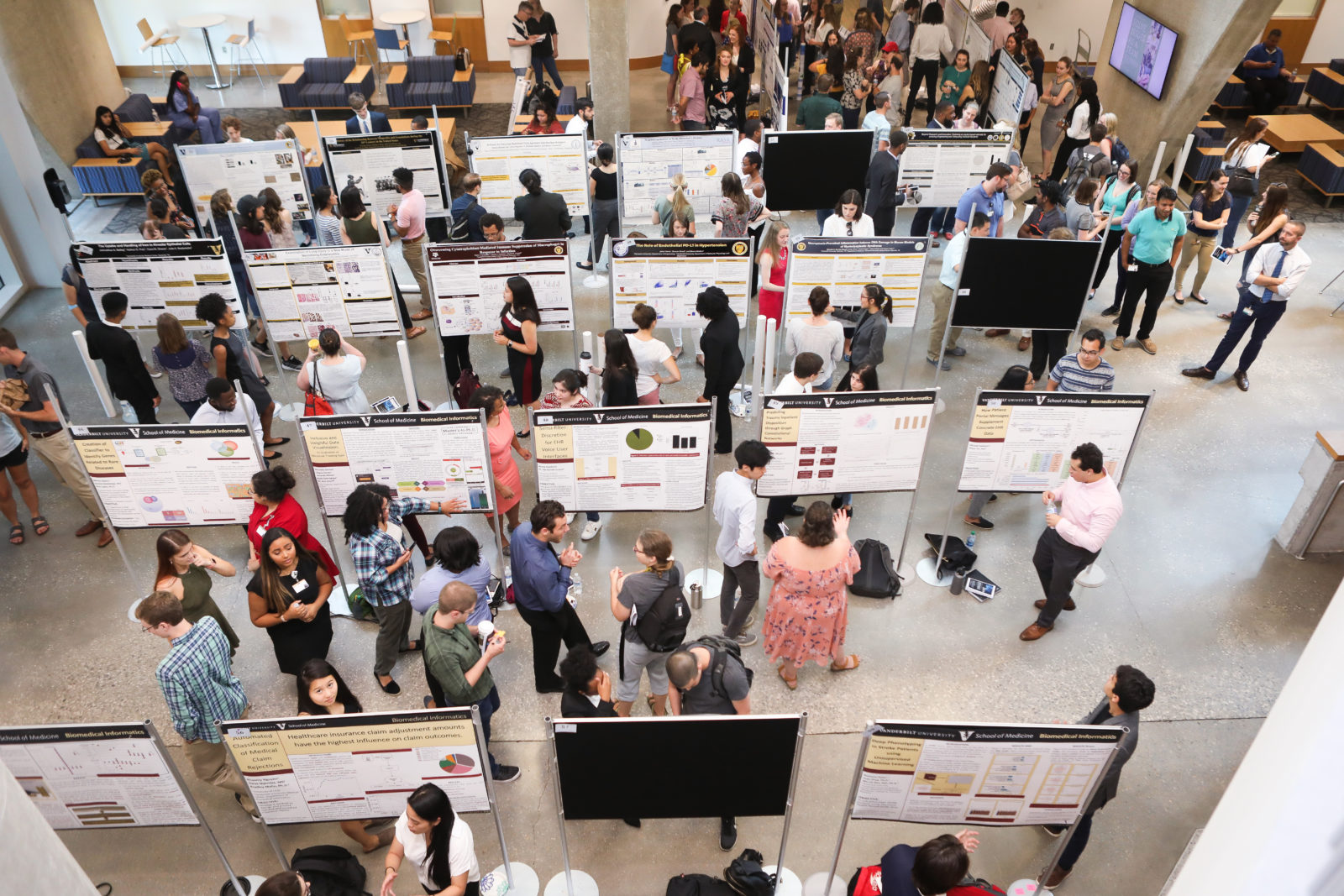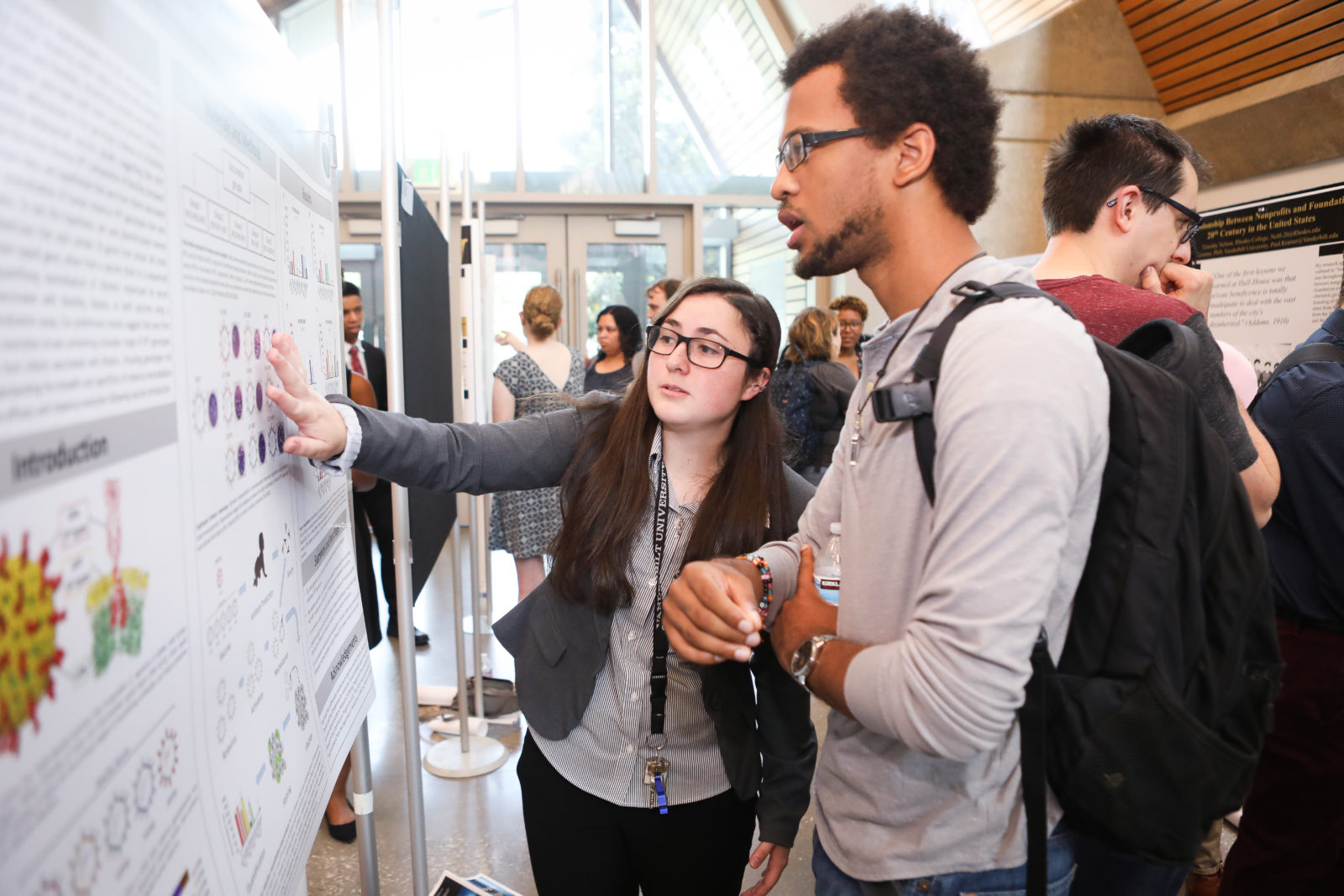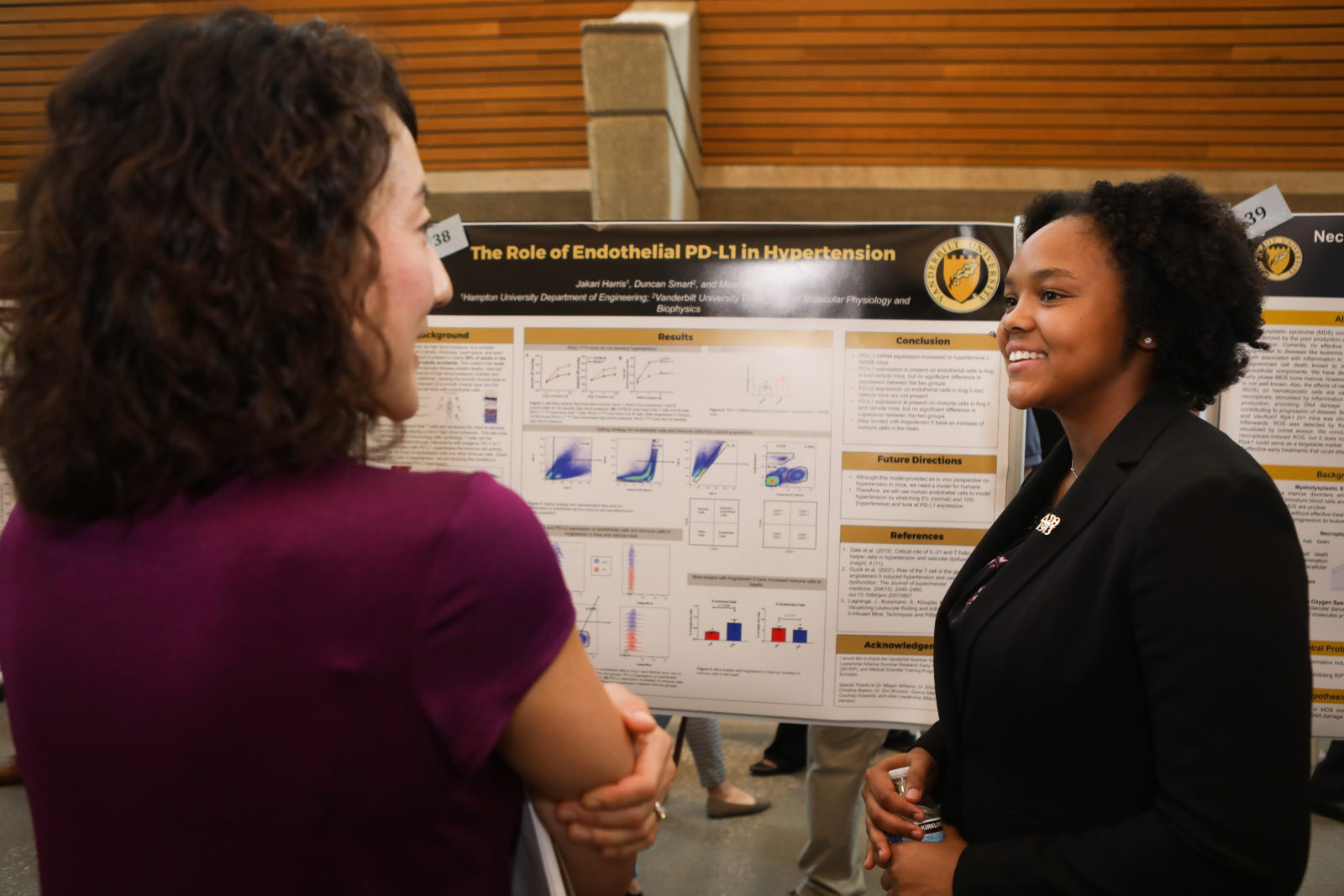Undergrads from across the nation participating in VSSA present at 17th annual student research symposium

(Susan Urmy/Vanderbilt)
More than 150 undergraduate students from institutions across the nation shared their research and discovery as part of the elite Vanderbilt Summer Science Academy at the 17th annual Student Research Symposium Aug. 1. VSSA participants used the symposium, held at the School of Engineering, as an opportunity to showcase their research accomplishments and the skills they learned during the summer while working in labs and departments across Vanderbilt’s campus.
“As one of the country’s top universities and a leading medical research institution, Vanderbilt is extending its reach to talented students nationwide through VSSA,” said Bowman. “We are helping to recruit the next generation of biomedical researchers and clinicians and providing them with critical undergraduate research experience. As a culmination of their summer, the research symposium allows program participants to connect with and learn from one another about the incredible work that happened across Vanderbilt this summer.”
Founded in 2003 by the Office of Biomedical Research Education and Training in the School of Medicine, VSSA provides undergraduate students who are interested in careers in medicine with the opportunity to come to Vanderbilt during the summer to learn, conduct research and participate in clinical patient care. The program is co-directed by Assistant Professor of Medical Education and Administration Beth Bowman, and Program Manager for the Initiative for Maximizing Student Diversity at the School of Medicine Christina Keeton.
Throughout the nine-week VSSA program, students completed a research project under the leadership of a research mentor and some students also had the opportunity to observe clinical patient care while spending time with residents and attending physicians. Students can apply to one of two programs: the Basic Sciences Programs for undergraduates interested in careers in research, as well as the Undergraduate Clinical Research Internship Program for undergraduates interested in practicing medicine.
“Through VSSA, I have gathered the tools and information for applying to graduate school and for the scholarships that will fund my graduate career,” said Shania Vel Sanchez, a student from the University of New Mexico who researched vaccines with Assistant Professor of Pathology, Microbiology and Immunology Kristen Ogden. “I also learned the discipline it takes to conduct an intensive research project and the steps it takes to read a scientific paper, write a scientific abstract and develop an oral presentation.”

(Susan Urmy/Vanderbilt)
Currently, the VSSA unites 20 different research programs and offers a broad array of resources, such as supplementary research seminars, enrichment activities, lectures and social outings. Students participating in VSSA are supported through several funding mechanisms, including internal, regional and national funding sources.
Alli Harper, a student from Berea College in Kentucky, spent the summer researching the efficacy of FDA-approved drugs when repurposed to suppress premature labor in patients. Harper, who was also part of the School of Medicine’s “short pipeline” program, which encourages underrepresented students to pursue a career in medicine, worked with Jennifer Herington, assistant professor of pediatrics in the Division of Neonatology.
Harper praised VSSA and the pipeline program for preparing her to pursue a future in medicine. “Without this program, I would not have known the importance of research. I can honestly say, out of my entire undergraduate career, VSSA and the pipeline program have been the most valuable and rewarding experience,” she said.
University of Texas at Dallas student Isaiah Swann spent his second consecutive summer doing neuroscience research at Vanderbilt. He spent this summer working with Professor of Biochemistry Bruce Carter.
“While I have known for a while that I want to pursue a combined M.D./Ph.D., this summer made me realize how much I appreciate good mentors. I definitely want to become a mentor to future generations of prospective physician-scientists once I am in a position to do so,” Swann said. “This is a program for people who care about community and mentorship. This is definitely an institution that I see myself attending in the future.”

(Susan Urmy/Vanderbilt)
This year’s symposium was jointly managed with the Vanderbilt Institute for Nanoscale Science and Engineering’s Research Experience for Undergraduates program and the Department of Physics and Astronomy’s Research Experience for Undergraduates program. The partnership created new opportunities for cross-disciplinary collaboration and a capstone experience for students to present their research.
For more information about the Vanderbilt Summer Science Academy, visit medschool.vanderbilt.edu/vssa/ .